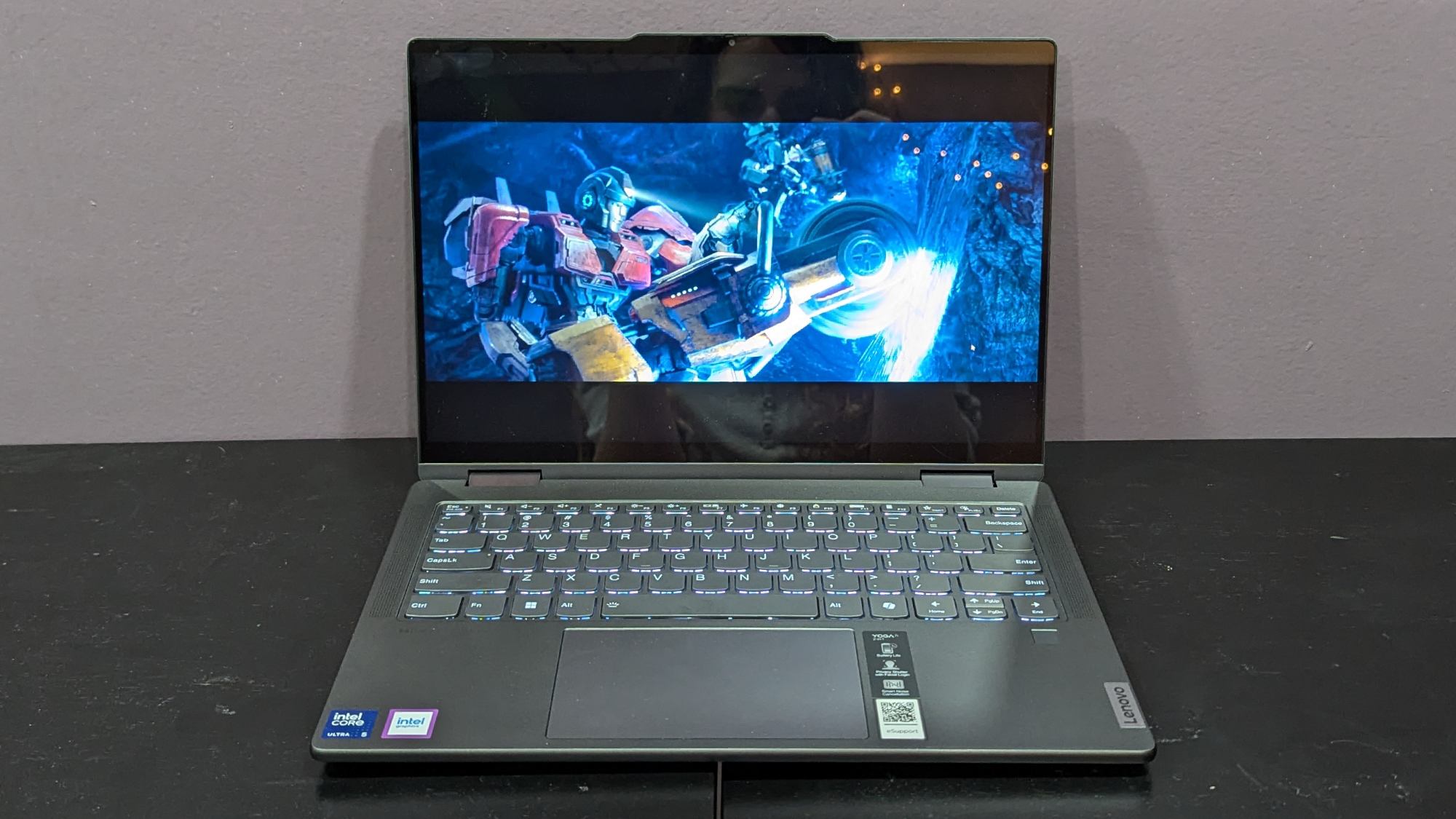
Not every laptop needs to break the mold.
There’s something to be said about the value of a reliable product line, even if it doesn’t exceed expectations. That’s exactly what Lenovo has accomplished with the 14-inch Yoga 7i 2-in-1. It features an expectedly sturdy aluminum chassis, a clicky keyboard, and firm hinges that are standards of the Yoga series. But don’t let its establishment lull you into a sense of boredom — the Yoga 7i 2-in-1 will surprise and delight when you least expect it.
The most obvious of those delightful surprises is its cost., which is competitive in a tough market. The next pleasant surprise might come about 13 hours after you turn it on, when the battery runs out. However, your senses will notice drawbacks, too, like its could-be-brighter display and slightly muffled sound system. Keep reading to see if the Lenovo Yoga 7i is right for you.
Lenovo Yoga 7i 2-in-1: Specs
Lenovo Yoga 7i 2-in-1: Price and configuration
The Yoga 7i we reviewed is available for just $899 from Lenovo. It’s built with an Intel Core Ultra 5 125U processor, integrated Intel graphics, 16GB of RAM, and 512GB of SSD storage. It also has a 14-inch, 1,920 x 1,200-pixel display at a 60Hz refresh rate.
There are three models of the Yoga 7i 2-in-1 available. The most expensive is $1,049 at Lenovo, which bumps the processor up to an Intel Core Ultra 7 155U processor and 1TB of SSD storage. The other model maintains the Intel Core Ultra 5 125U processor but increases to 1TB of SSD storage for $929.
Lenovo Yoga 7i 2-in-1: Design
Simple but effective, the Yoga 7i channels a minimalist aesthetic that never fails to please. Pulling it out from its box, I was charmed by its sturdy aluminum lid with a dark gray finish. Lifting the lid reveals a glossy panel and a deck that doesn’t waste space, featuring a backlit keyboard with a thin row of speakers on each side.
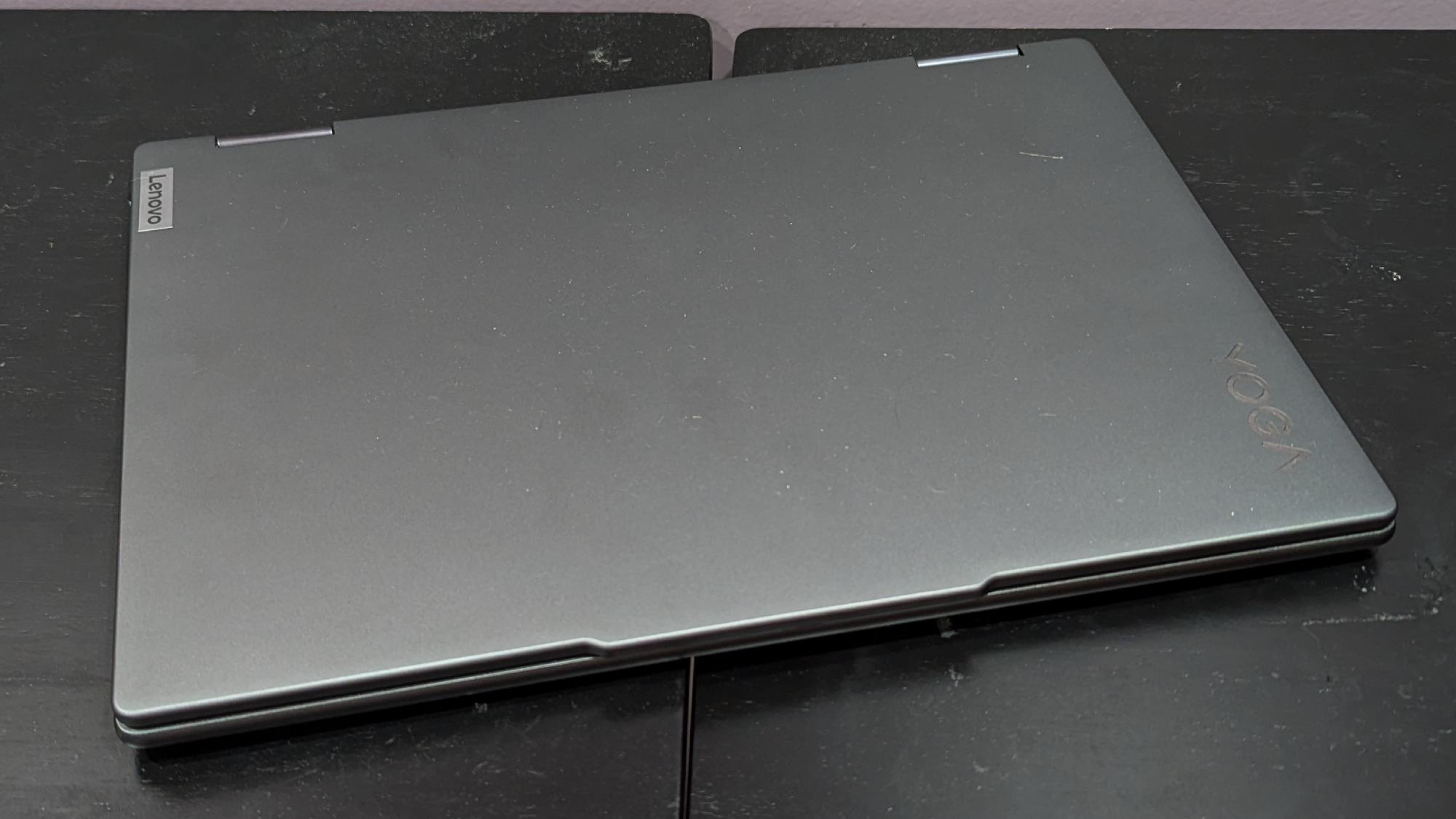
Lenovo has an impressive track record for sturdiness in its Yoga models. Even when maintaining a thin and light design, it feels robust. That durability is especially important for a 2-in-1 that will often be bent to angles acute and obtuse, and it helps that the hinges are firm and don’t wobble when moved.
The Yoga 7i weighs 3.6 pounds and measures 12.5 x 8.8 x 0.7 inches, which is a bit heavier and thicker than a similarly sized competitor like the Asus Zenbook 14 OLED (3 pounds, 12.3 x 8.7 x 0.6 inches). On the other hand, the larger HP Envy x360 2-in-1 (4 pounds, 14.1 x 9 x 0.7 inches and 16-inch Lenovo Yoga 7i Gen 9 (4.4 pounds, 14.24 x 9.84 x 0.67 inches) are both unsurprisingly heavier.
Lenovo Yoga 7i 2-in-1: Ports
While the Yoga 7i does feature two USB Type-C ports, one will deliver power to the device, so you’ll only be stuck with one Thunderbolt 4 while charging. If you have a docking station, it still has an OK selection of ports, but an additional USB Type-C would’ve been nice.
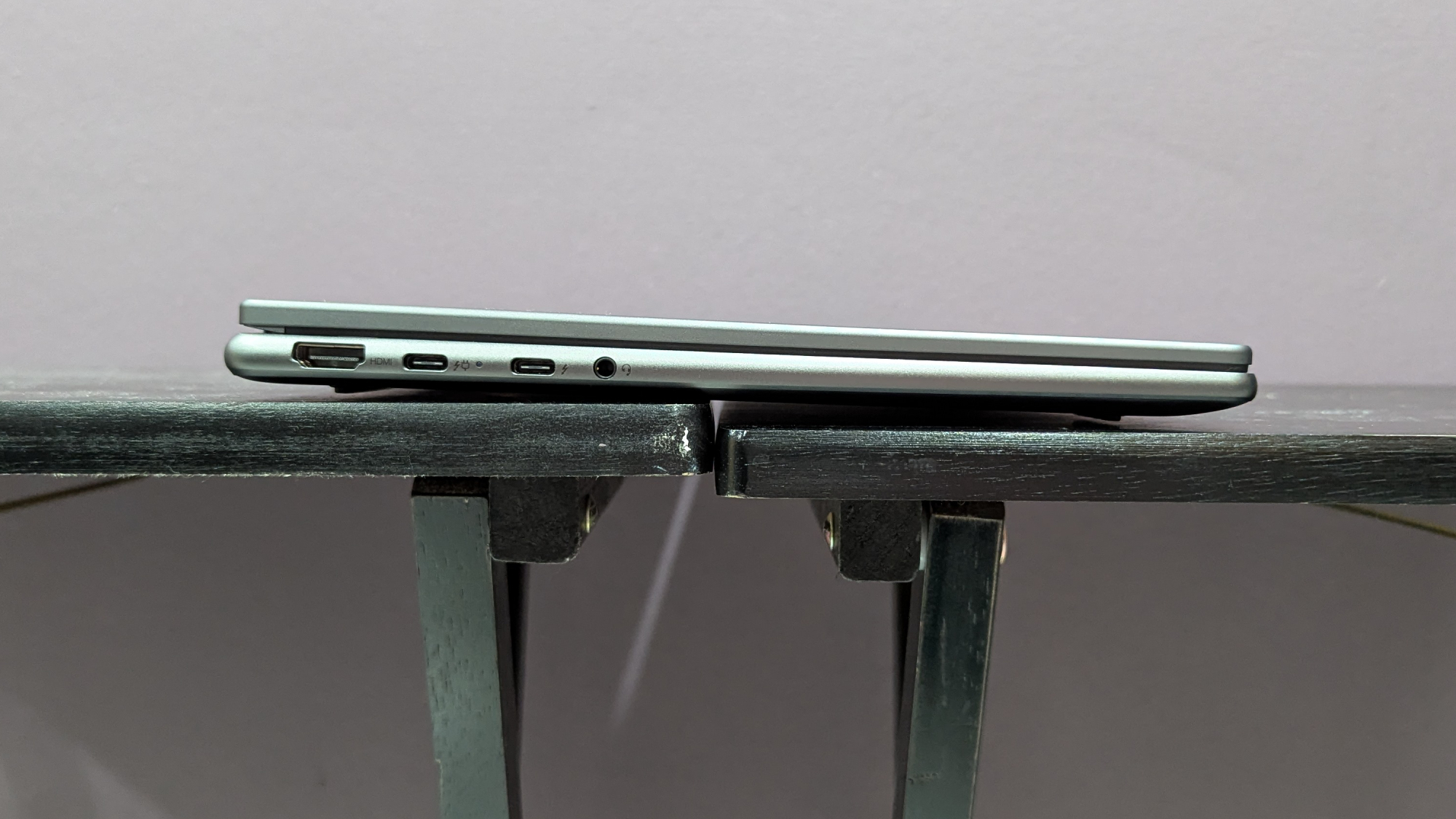
On its left side, it has two Thunderbolt 4 ports, an HDMI 2.1, and an audio jack. On its right side. It has a USB 3.2 Type-A port and a microSD card reader.
Lenovo Yoga 7i 2-in-1: Display
Built with a 14-inch, 1,920 x 1,200-pixel display at a 60Hz refresh rate, this screen doesn’t have much going for it if you want true-to-life color. In a word, it’s dim. A glossy panel that makes for a more vivid image helps, though.
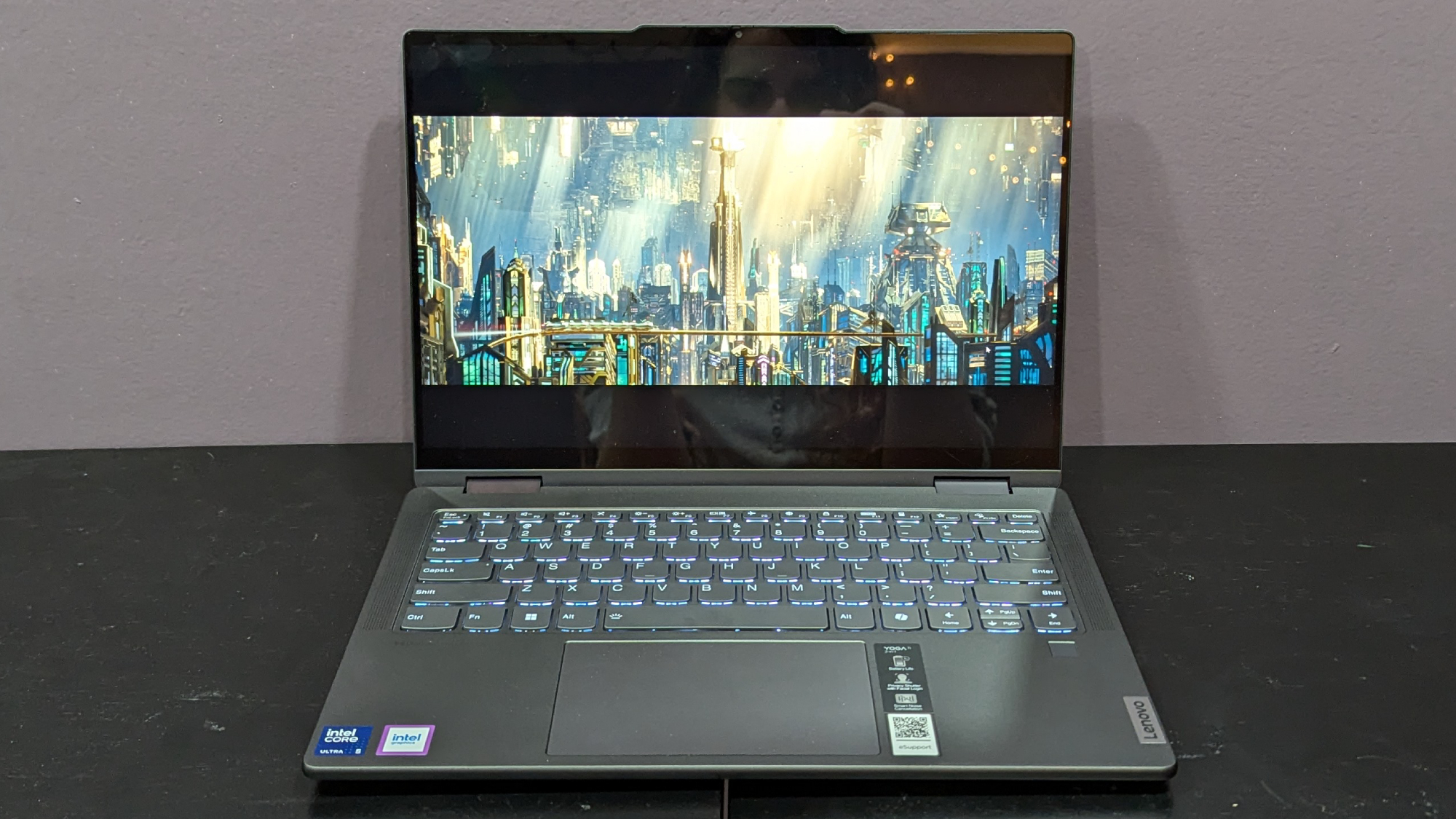
I watched the trailer for Transformers: One, and the Yoga 7i presented its otherwise colorful and vibrant world without much brilliance. It’s not necessarily colorless, but it’s especially evident when the transformers are on screen at once; each appears faded and lacking in boldness, which is true for the world as a whole. For movies, it’s worth your time to consider watching on another device.
The Yoga 7i did poorly on our color tests, reproducing 46 percent of the DCI-P3 color gamut. This is significantly worse than the average for the mainstream laptop, which is 85 percent. The Zenbook 14 (80%) performed close to average, while the Envy x360 (128%) was demolished with its gorgeous OLED display. The 16-inch version of the Yoga 7i (47%) was pretty much on par in coverage.
Its subpar brightness hit a peak of 314 nits on average, which is below the 391-nit mainstream laptop average. None of its competitors matched the average, but the Zenbook 14 (339 nits) and Envy x360 (378 nits) still outpaced the Yoga 7i. The 16-inch version of the Yoga 7i (312 nits) performed near-identically, which is no shock considering it boasts the same panel.
Lenovo Yoga 7i 2-in-1: Audio
The Yoga 7i is trapped at a new level of quiet.
The Yoga 7i 2-in-1 won’t be getting my congratulations insofar as its speakers go. I tested it across both film and music, but neither presented a particularly full, loud, or punchy sound.
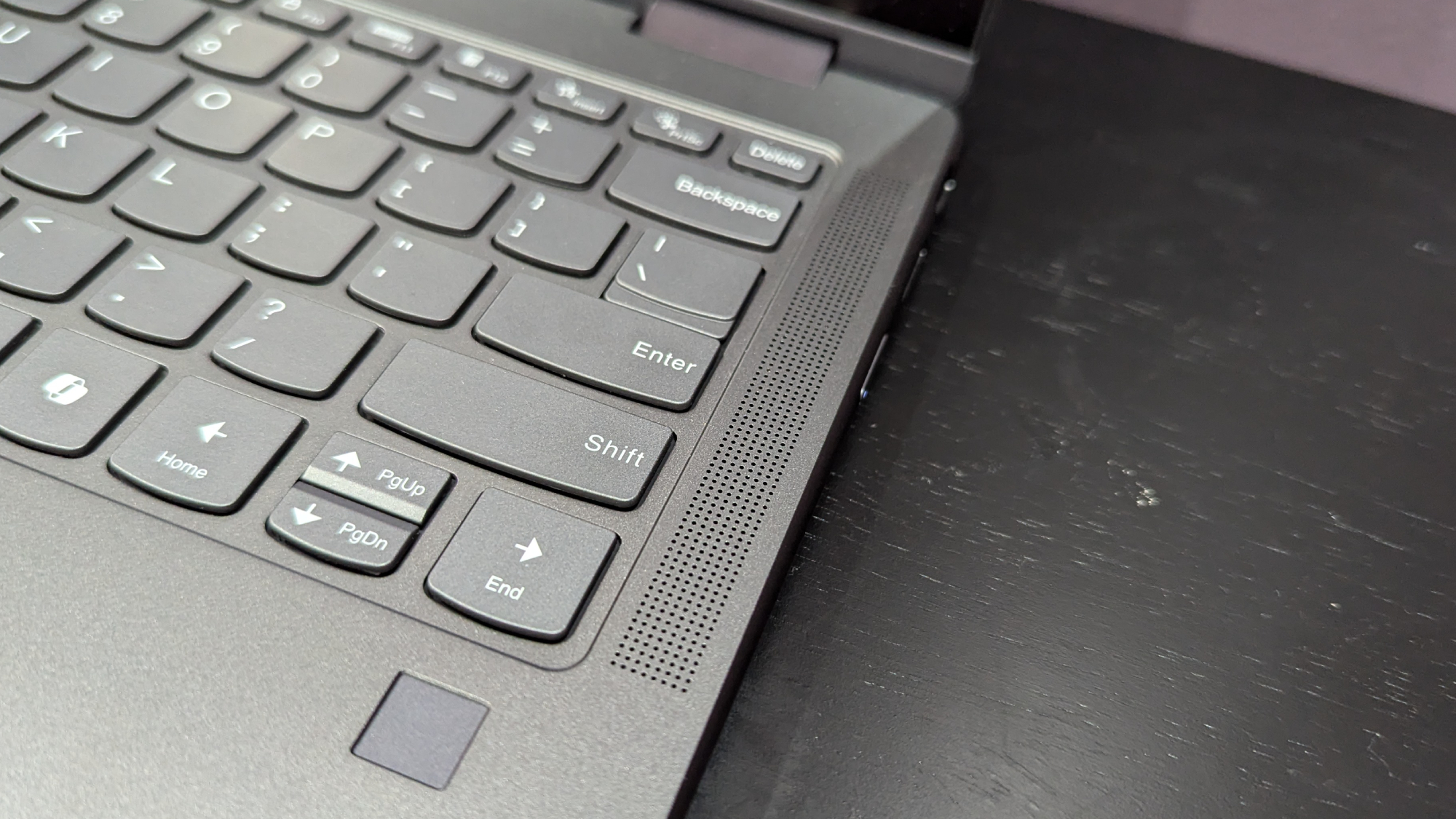
I watched the trailer for Transformers: One, and it was as if the laptop was constantly at half volume, even when turned all the way up. It’s not uncommon to encounter laptops that aren’t loud enough, but the Yoga 7i is trapped at a new level of quiet. Otherwise, the speakers sound subpar. They offer effects, music, and dialogue with clarity, but they notably lack a punch and come across as flat. It’s a 2-in-1, which means portability, which also might mean you’ll be using it around other people. Can we suggest some great headphones, instead?
I listened to Olivia Rodrigo's pop-rock anthem, “Get Him Back!” and was happy to hear the speakers get a little louder, but I was not impressed by the sound quality. The electric guitar was cloudy and muffled over the speakers, and when Rodrigo was singing, it sounded muddy. As she increased her pitch, it came across as flat and underwhelming.
Lenovo Yoga 7i 2-in-1: Keyboard and trackpad
I took the 10fastfingers typing test and managed 110 words per minute with 97 percent accuracy, which is pretty close to how I can normally perform on my mechanical keyboard. This isn’t much of a shock, as Lenovo Yoga keyboards consistently steal my heart. They’re clicky, satisfying, and well-sized. However, I do wish the arrow keys had their own nook, as the up and down arrows are half-sized.
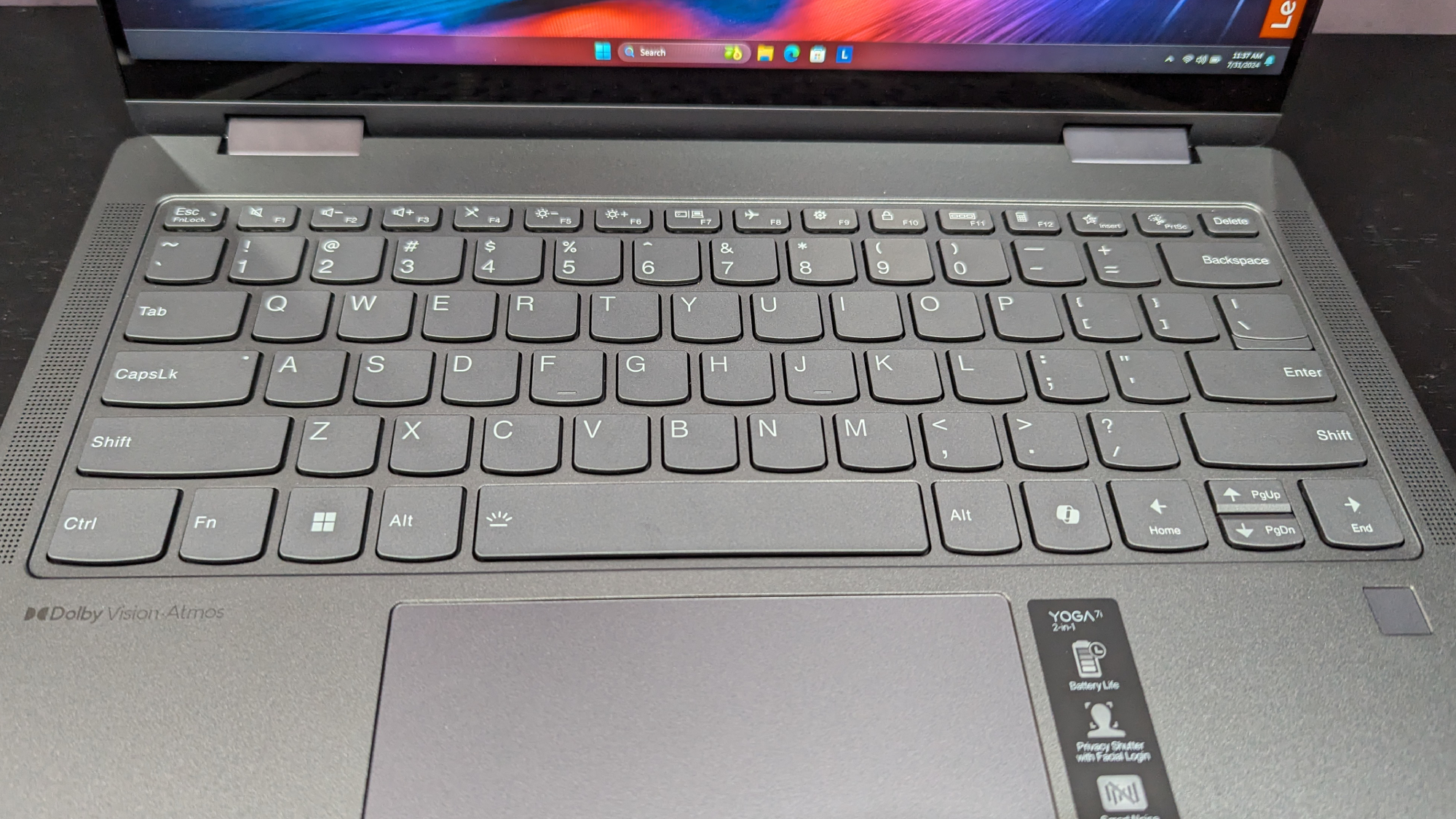
The 4.9 by 3-inch trackpad feels silky smooth, although the top portion is not clickable, which has resulted in a few failed dragging motions. Otherwise, I had no problem moving files between folders, browsing the web, or performing multi-finger gestures.
Lenovo Yoga 7i 2-in-1: Performance
The Yoga 7i is built with an Intel Core Ultra 5 125U processor, 512GB of SSD storage, and 16GB of RAM. It’s a lightweight configuration that can still perform well enough for most tasks, but it won’t handle heavy loads well.
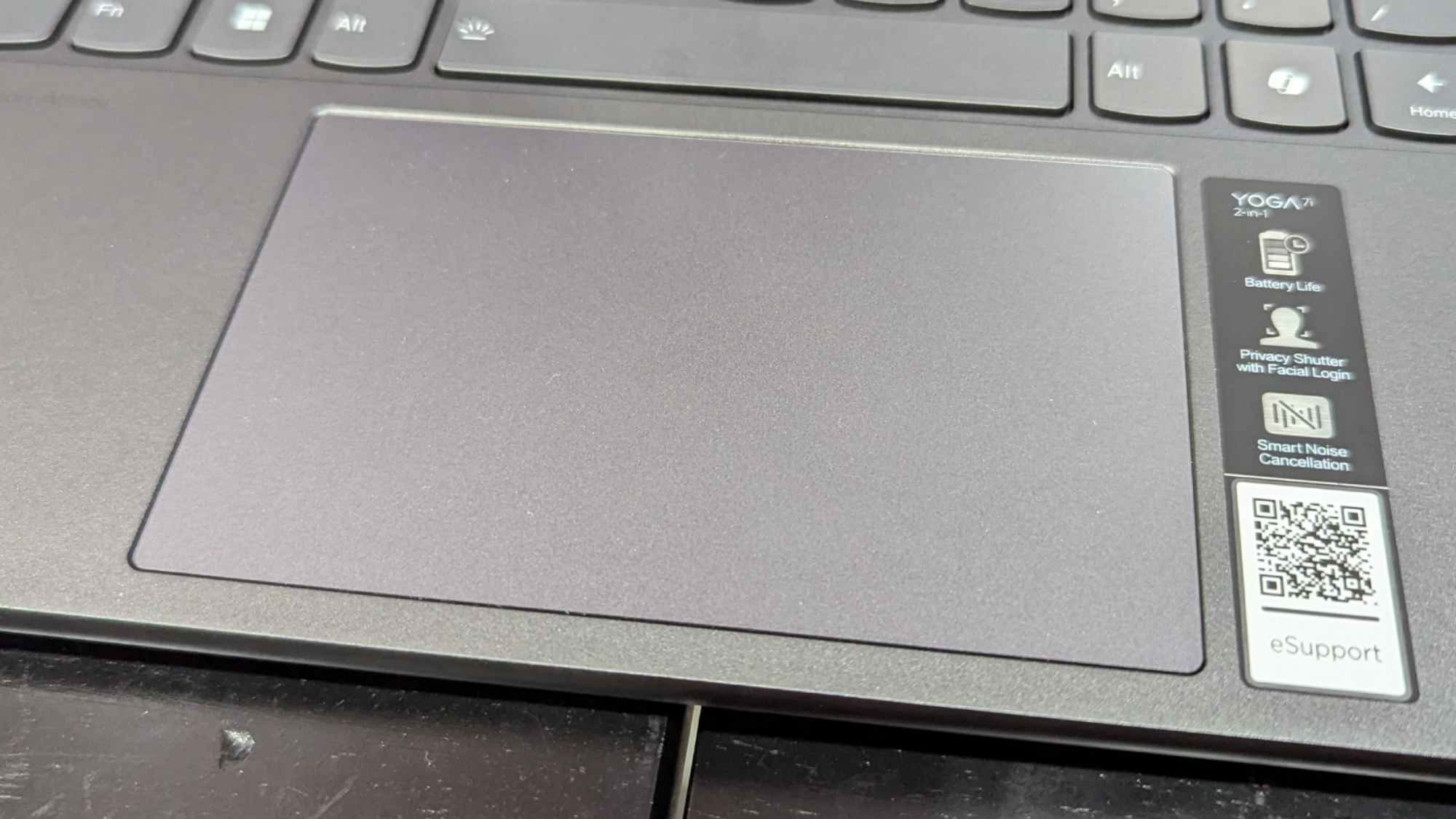
On the Geekbench 6 overall performance test, the Yoga 7’s multi-core score of 9,214 isn’t excellent, but that’s no surprise considering the laptop boasts a weaker CPU. This is worse than the category average of 10,111. The Zenbook 14 (Intel Core Ultra 7 155H, 12,707) is miles ahead with its i7 processor, while the Envy x360 (AMD Ryzen 7 7730U, 8,196) is quite a bit behind. The 16-inch Yoga 7i (Intel Core Ultra 5 125U, 9,415) earned a similar score with the same CPU.
While converting a 4K video into 1080p using the HandBrake app, the Yoga 7i managed to accomplish the task in 10 minutes and 14 seconds, which is slower than the 8-minute and 6-second category average. Again, this isn’t surprising, considering it boasts the weakest Meteor Lake processors. The Zenbook 14 (6:36), Envy x360 (7:30), and 16-inch Yoga 7i (8:39) all handled the task much quicker.
The Yoga 7i duplicated 25GB of multimedia files in 27 seconds at a transfer rate of 1,002 megabytes per second, which is a bit slower than the 1,144Mbps category average. The Zenbook 14 (1TB SSD, 1,236MBps), Envy x360 (1TB SSD, 1,245Bps), and 16-inch Yoga 7i (512GB SSD 1,368MBps) all boast faster SSDs.
Lenovo Yoga 7i 2-in-1: Graphics
The Yoga 7i is not a gaming laptop, and with an i5 processor, you won’t have much luck playing anything on it. Regardless, we ran it through a few tests to see how it fares.
During the Sid Meier’s Civilization VI: Gathering Storm test at 1080p, it achieved an average of 26 frames per second. Unsurprisingly, the category average of 43 fps is a bit higher, as some mainstream laptops feature a dedicated GPU. The Zenbook 14 (31 fps) and Envy x360 (42 fps) had no trouble hitting above our 30 fps playability threshold, while the 16-inch Yoga 7i (20 fps) was down in the dumps alongside its 14-inch sibling.
On the 3DMark FireStrike synthetic graphics benchmark, the Yoga 7i scored 5,010. This is worse than the 6,867 category average, but only the Zenbook 14 (8,064) managed to clear that threshold. Both the Envy x360 (3,872) and 16-inch Yoga 7i (4,969) performed worse.
Lenovo Yoga 7i 2-in-1: Battery life
We were blown away by how long the Yoga 7i lasted.
Battery life is vitally important for portable 2-in-1 laptops of this kind, and we were blown away by how long the Yoga 7i lasted. On the Laptop Mag battery life test involving continuous web browsing over wifi at 150 nits, the Yoga 7i survived 12 hours and 57 minutes.
This is three hours longer than the category average of 9 hours and 58 minutes, which is a staggering performance. The Zenbook 14 (15:52) did outlast it by a few hours, but the Envy x360 (9:17) and 16-inch Yoga 7i (11:24) were outclassed.
Lenovo Yoga 7i 2-in-1: Webcam
To put it plainly: The Lenovo Yoga 7i's 1080p webcam is surprisingly poor for a 2-in-1 productivity laptop. You’re better off purchasing one of the best webcams if you need it for more than basic conferencing.
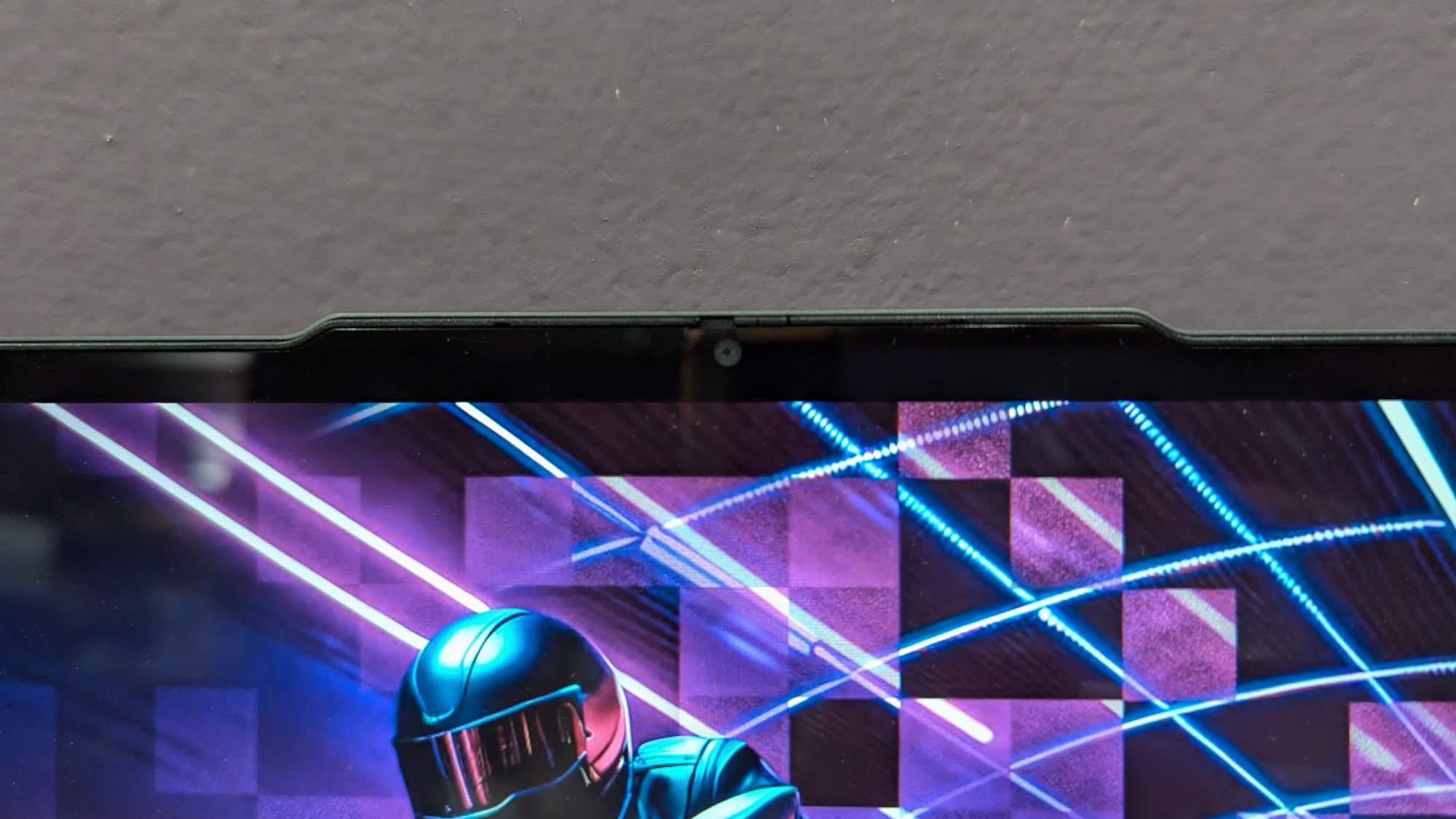
I took a photo of myself and was stunned by how faded the image appeared, which is likely in part due to the display’s poor color. It sort of looked like it had a sepia filter over it, and the pink of my wall lacked the boldness it boasts in real life. Even the details on my face appeared fuzzy and difficult to discern.
Lenovo Yoga 7i 2-in-1: Heat
Thanks to the understated Yoga 7i’s power, heat was not an issue throughout my testing. The touchpad remained cool at 73 degrees Fahrenheit, while the G/H key hit 84 degrees. Its hottest point was 91 degrees at its underside, which is still not that bad. We have a 95-degree comfort threshold, and the laptop didn’t hit that at any point in our testing.
Lenovo Yoga 7i 2-in-1: Software and warranty
The benefit of choosing Lenovo is its built-in software.
Of course, Windows 11 is the Yoga 7i’s operating system, but the benefit of choosing Lenovo is its built-in software. Lenovo Vantage allows the user to see information about their laptop, including its warranty, product details, system updates, device settings, security, hardware scans, and a slew of support services.
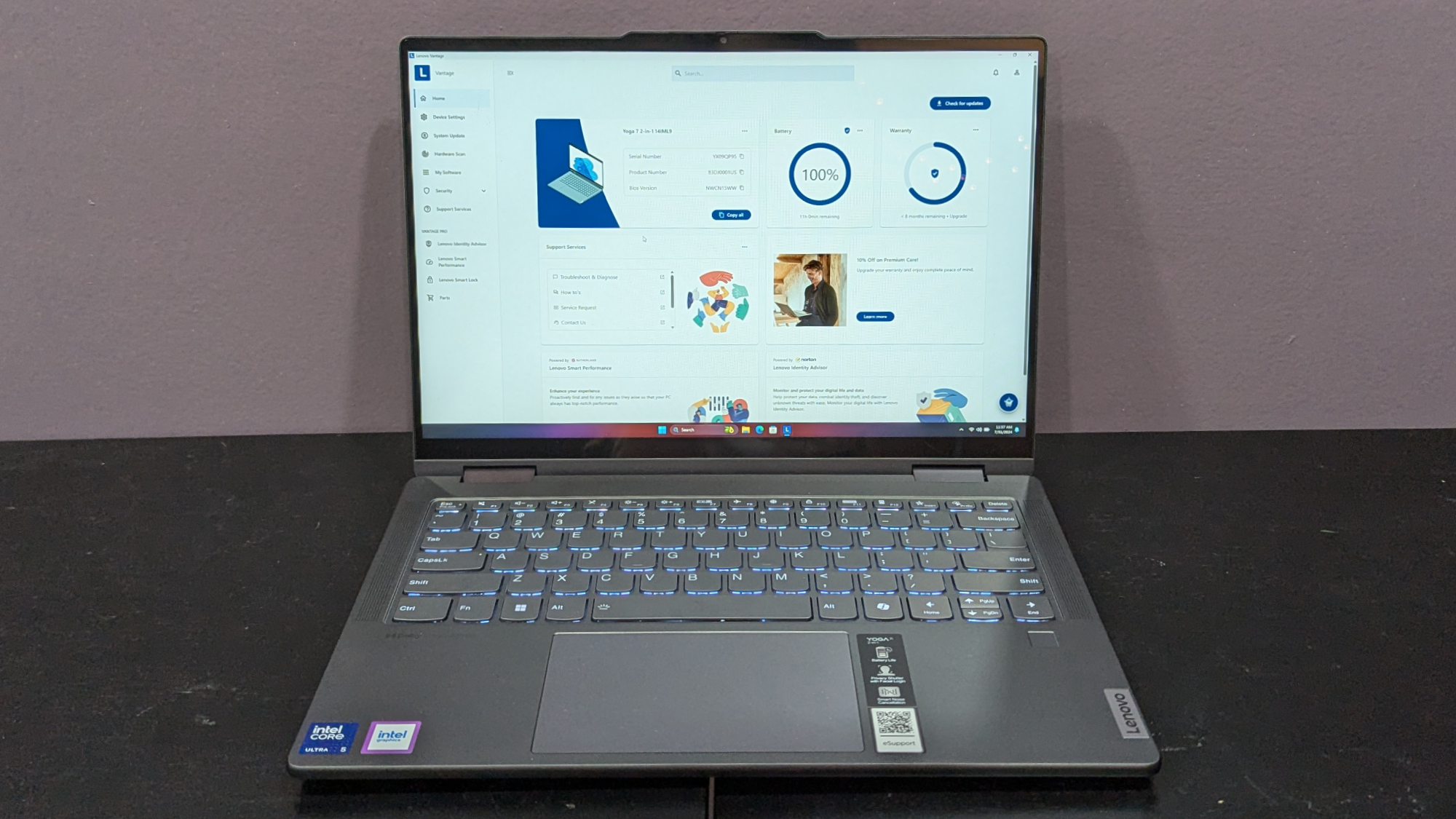
The Yoga 7i comes with a one-year limited warranty. You can see how Lenovo did in our Tech Support Showdown special report.
Bottom line
The 14-inch Lenovo Yoga 7i 2-in-1 is, plain and simple, reliable. For under $1,000, you’re getting decent performance, a sturdy aluminum chassis, a satisfying typing experience, and long-lasting battery life. It doesn’t exceed expectations beyond its longevity, but that’s okay.
We just wish its display wasn’t as dim as it is, alongside a mediocre speaker system that won’t fill a room, nor will it sound particularly good. If you want a solid alternative, the Asus Zenbook 14 OLED is lighter, lasts a few hours longer, and has a colorful OLED panel. Otherwise, the Lenovo Yoga 7i is a solid 2-in-1 laptop. And that sort of consistency is what you want and expect.







